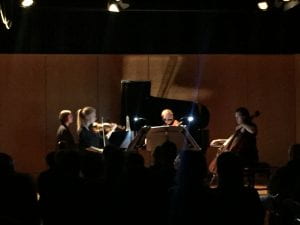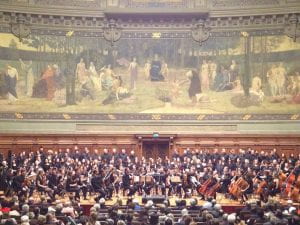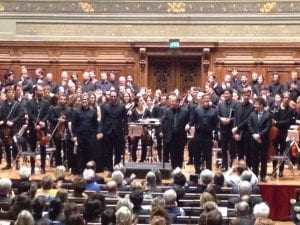This interview took place online on 14 August 2020 between Dr Erik Nyström, Admissions Tutor for the BSc in Music, Sound and Technology, and current BSc student Jade Bailey.
Erik Nyström: I’d like to welcome Jade Bailey for an interview. Jade is a second-year student on our BSc programme and – amongst many other things – a very talented sound designer and studio composer. Her recent piece ‘Conversations’ is linked here: https://soundcloud.com/user-659425751/conversations-by-jade-bailey
Jade, could you tell us a bit about what brought you to our BSc programme?
Jade Bailey: Hi Erik, thank you for inviting me to chat today! When I was applying for university I initially struggled with choosing a programme, I knew I wanted to study within music but was unsure whether to take a 100% sound design route or to study music more broadly. Upon attending multiple Open Days at City, I found that the BSc Music, Sound and Technology programme had everything I was looking for – featuring a wide range of practical and written modules whilst also offering sound design and composition as core modules, which was very important to me.
EN: Great, what kind of background experience in music or sound and technology did you have?
JB: Prior to studying at City I had only studied Music at GCSE Level, but I have always had a keen interest and passion for music having played piano from a young age. I had developed a strong interest in music technology, such as music production and sound design whilst studying for my A-Levels and began producing and composing my own music – which lead me to pursue a degree in Music Technology!
EN: That’s great, many of our incoming students have similar background experience,and have also no doubt been through the decision anxiety of what route to take in university. You mention the combination of practical and written modules, have you found it rewarding to be able to link theory and practice?
JB: Yes definitely! I’m a firm believer that you need an equal balance of theory and practice, especially on a course like Music Technology. It’s essential to learn the theory behind specific skills, such as within Studio Recording and Composition, in order to be able to put these ideas into practice effectively.
EN: I agree, and we try to link theory and practice as much as we can. Critical thinking and listening is also important for creativity. Which modules have you enjoyed the most so far?
JB: I’ve really enjoyed all of the modules I have taken so far, but my favourites have definitely been Sound Design and Studio Composition, as these modules do a great job of merging theory with creative practice and allow a lot freedom in terms of creative expression. Another of my favourite modules has been Electronic Dance Music, which taught the origins of EDM in Techno and House music and culminated in a field trip to Fabric which was fantastic!
EN: Yes, the field trip to Fabric is a favourite for many I think. I’ve never been there daytime! 🙂 You’ve certainly done well in sound design and studio composition, are these interests that you are hoping to pursue in your future as well?
JB: Absolutely! The Sound Design and Studio Composition modules have definitely helped me find ‘my sound’, so to speak. Before joining City I had never encountered electroacoustic composition as studied within Studio Composition – and now it is my favourite part of university study! This is a prime example of the wide range of knowledge and sound practices I have been introduced to on the BSc programme, and has definitely been one of the most rewarding parts of my degree so far!
EN: That’s great, and electroacoustic music is something that City has been doing since 1975, so we should be a good place for that! You mention your ‘sound’ could you tell us a bit about what techniques and software you like to use in your work?
JB: Of course! I primarily use Logic Pro X when composing, as it is the DAW I am most familiar with. Whenever I am composing I like to go on sound walks as well as use field recording techniques to gather sound material, as I don’t use samples in any of my works. To do this, I use my Tascam DR-05X which I have found perfect for field recording as it is so light and portable! In terms of techniques, I often take elements of what I have learnt whilst studying sound design on board when I am composing as this definitely helps widen the range of sound material I can gather. For example, one my recent pieces ‘Enniscrone’ uses the sound of my hands on my bedroom carpet to mimic the sound of ocean waves!
EN: Wow, that’s great, I had no idea, it’s really quite mind-blowing how deceptive sound can be! For readers, Enniscrone can be heard in the linked here: https://soundcloud.com/user-659425751/enniscrone-by-jade-bailey. I remember you made a very impressive sound design piece with granular synthesis as well in year 1. What are you planning to do for your Major Project in the final year?
JB: My Major Project in Composition will be based on the concept of “The Musicality of the Mundane”, in which I am planning to undertake extensive critical listening and field/studio recording sessions in order to unveil the musical qualities (such as pitched/rhythmic/sonic qualities) that everyday, non-musical objects possess. I am also planning to present these findings in a series of hyper-real electroacoustic compositions.
EN: That’s very interesting. Were you always drawn to the hidden musicality in everyday sounds or is that something that you’ve discovered more during your studies?
JB: I would say this is something I have discovered since joining City, more specifically since joining City University Experimental Ensemble. Without sounding overly-dramatic, this ensemble has definitely changed the way I hear and appreciate sound. Since joining CUEE I have frequently found myself paying closer attention to the sounds around me than I had prior to joining the ensemble. Also, within the composition modules I have studied we are often asked to consider the bridge between sound and music, and how the two concepts are different. This method of teaching, coupled with my newfound appreciation of sound has certainly inspired the concept for my Major Project.
EN: I see, that makes sense. Do you have any advice for incoming students?
JB: My main piece of advice would be to get as involved in the music department as you can, whether this be in the form music-making with other students, attending the various extra-curricular activities and events taking place in the department, or volunteering to help out at a department event. One of the first things I noticed when I joined City was the strong sense of community within the music department. Everybody knows everyone, regardless of your year of study and whether you study the BSc or the BMus – so make sure to get as involved as possible!!
EN: That’s really good advice, Jade. We do place a lot of value in community and there is a really wide range of interests among students in the department. Thanks so much for your time Jade, and sharing so many insightful views!
JB: No problem! Thank you so much for having me!!
EN: Thanks Jade, and I wish you a great experience in year three!




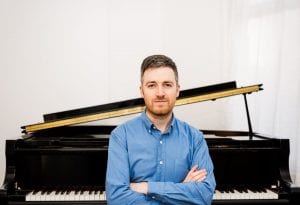

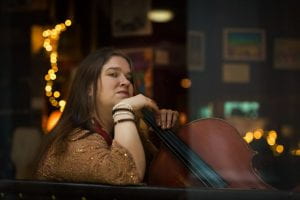





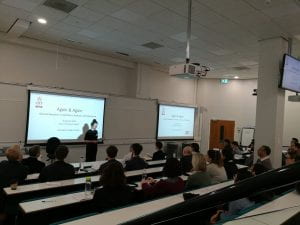

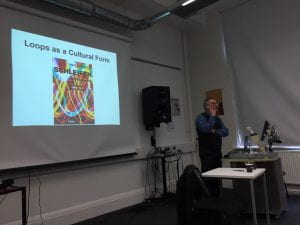 .
. 